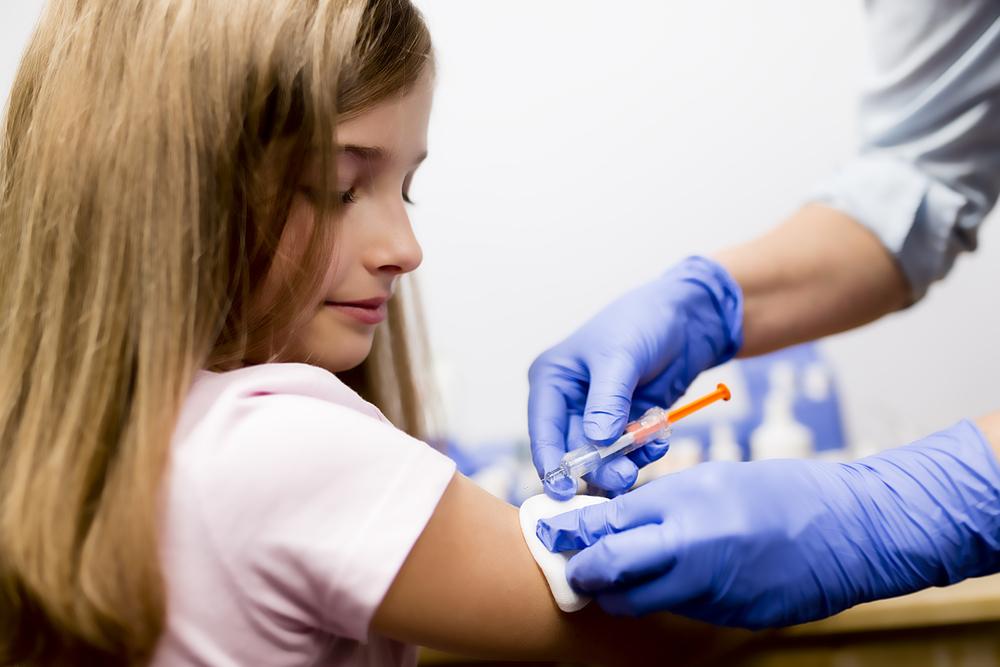Mumps, Measles and Rubella Vaccine
Rationale
If you are pregnant and then afflicted with rubella, your child may acquire some deformities and abnormalities. Mumps may lead to orchitis and infertility in the future. Measles could lead to blindness, especially among children. Thus, you need to avail of this vaccination with dispatch.
Generic and brand names
The generic name is Measles, Mumps, and Rubella Vaccine Live. The brand name is M-M-R II.
Composition of the vaccine
When reconstituted as directed, the dose for injection is 0.5 ml and contains not less than 1,000 CCID50 (50% cell culture infectious dose) of measles virus; 12,500 CCID50 of mumps virus; and 1,000 CCID50 of rubella virus.

Mechanism of action
Upon injection, your body responds by producing antibodies against mumps, measles, and rubella.
Schedule of administration
The dose is given at any time over the age of 12 months.
Indications and usage
M-M-R is indicated for simultaneous vaccination against measles, mumps, and rubella in individuals 12 months of age or older. This vaccination is also recommended for measles and mumps outbreaks. In addition, this is recommended for non-pregnant adolescent and adult females of childbearing age to serve as protection against subsequently acquiring rubella infection during pregnancy, which, in turn, prevents infection of the fetus and consequent congenital rubella injury.
Precautions
- Adequate treatment provisions including epinephrine (1:1000) should be available for immediate use should an anaphylactic or anaphylactoid reaction occurs;
- Due caution should be employed in the administration of this vaccine to persons with individual or family histories of convulsions, a history of cerebral injury or any other condition in which stress due to fever should be avoided. The physician should be alert to the temperature elevation which may occur following vaccination.
- Persons with a history of anaphylactic, anaphylactoid, or any other sudden reactions subsequent to egg ingestion may be at an enhanced risk of immediate-type hypersensitivity reactions after receiving vaccines containing traces of chick embryo antigen. The potential risk to benefit ratio should be carefully evaluated before considering vaccination in such cases. Such individuals may be vaccinated with extreme caution, and having adequate treatment on hand should a reaction occur.
- Individuals with current thrombocytopenia may develop more severe thrombocytopenia following vaccination. In addition, individuals who experienced thrombocytopenia with the first dose of this vaccine may develop thrombocytopenia with repeat doses. Serologic status may be evaluated to determine whether or not additional doses of this vaccine are needed. The potential risk to benefit ratio should be carefully evaluated before considering vaccination in such cases.
- This vaccine should never be given to pregnant women.
- Caution should be exercised when administering this vaccine to a nursing woman because recent studies have shown that lactating postpartum women immunized with live attenuated rubella vaccine may secrete the virus in breast milk and transmit it to breast-fed infants.
- Young adults who are known to be infected with human immunodeficiency viruses and are not immunosuppressed may be vaccinated with this preparation.
Side effects
- Common
- Burning and/or stinging of short duration at the injection site.
- Occasional
- Body as a whole
- Fever (1010 F or 38.30 C or higher)
- Skin
- Rash, or measles-like rash, usually minimal but may be generalized
- Generally, fever, rash, or both appear between the 5th and the 12th days.
- Rare
- Body as a whole
- Mild local reactions such as erythema, induration, and tenderness; a sore throat, malaise, atypical measles, syncope, irritability
- Cardiovascular
- Vasculitis
- Digestive
- Parotitis, nausea, vomiting, diarrhea
- Hematologic/Lymphatic
- Regional lymphadenopathy, thrombocytopenia, purpura
- Hypersensitivity
- Allergic reactions such as wheal and flare at the injection site, anaphylaxis and anaphylactoid reactions, as well as related phenomena such as angioneurotic edema (including peripheral or facial edema) and bronchial spasms, urticaria in individuals with or without an allergic history.
- Musculoskeletal
- Arthralgia and/or arthritis (usually transient and rarely chronic), myalgia
- Nervous/Psychiatric
- Febrile convulsions in children, afebrile convulsions or seizures, headache, dizziness, paresthesia, polyneuritis, polyneuropathy, Guillain-Barre syndrome, ataxia, aseptic meningitis, measles inclusion body encephalitis. Encephalitis/encephalopathy have been reported approximately once every 3 million doses. In no case has it been shown that reactions were actually caused by the vaccine. The risk of such serious neurological disorders following live measles virus vaccine administration remains far less than that for encephalitis and encephalopathy with wild-type measles (one per two thousand reported cases).
- Respiratory system
- Pneumonia, pneumonitis, cough, rhinitis
- Skin
- Erythema multiforme, Stevens-Johnson syndrome, vesiculation at injection site, swelling, pruritus
- Special senses
- Forms of optic neuritis, including retrobulbar neuritis, papillitis, and retinitis; ocular palsies, otitis media, nerve deafness, conjunctivitis
- Urogenital
- Epididymitis, orchitis
Dosage and mode of administration
The dose is 0.5 ml administered subcutaneously or intramuscularly.

